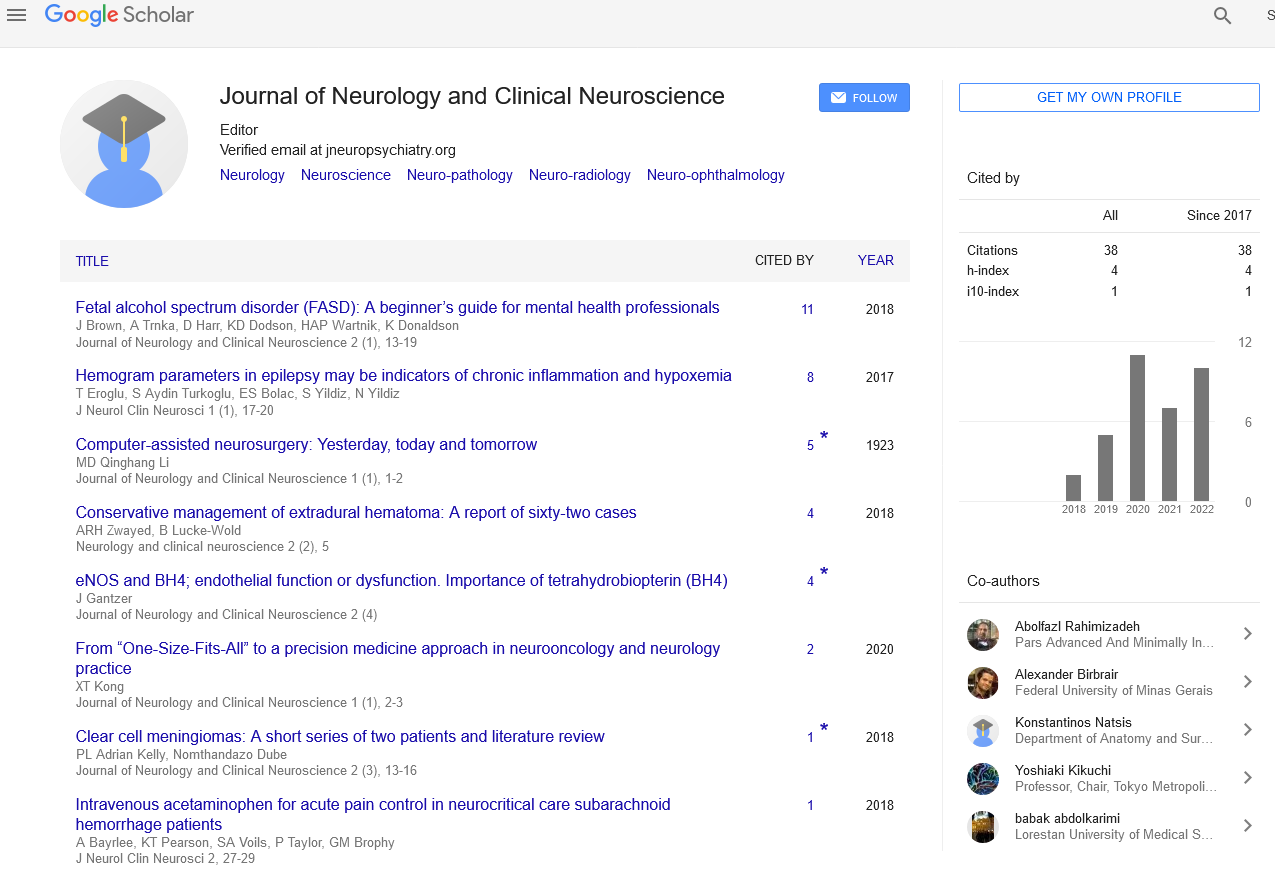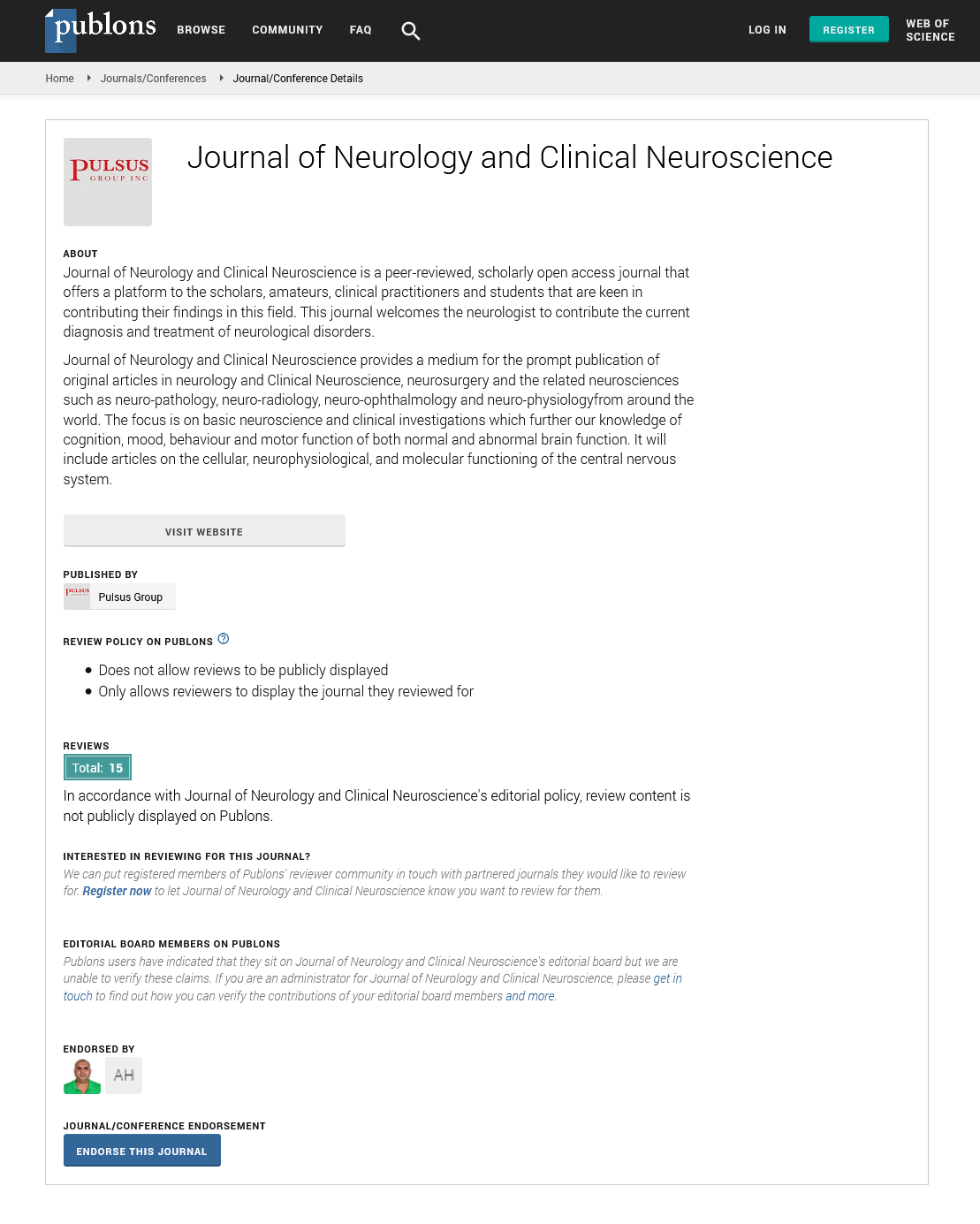Sign up for email alert when new content gets added: Sign up
Neurodegenerative Disorders and botanicals as therapeutics in Indian system of medicine
Joint Event on 9th International Conference on Parkinsons & Movement Disorders & 10th International Conference on Neurodegenerative Disorders & Stroke
February 10, 2022 | Webinar
Vineet Kumar Goswami
Delhi Technological University, India
Posters & Accepted Abstracts: J Neurol Clin Neurosci
Abstract :
Neurodegenerative disorders are the neural impairedness in the aged & old people or a result of injury to the head is young people which primarily remain unnoticed until manifestation of disease in form of visible sign and symptoms or the ischemic changes in the radio diagnostics. Parkinson's disease (PD) is a complex multi-system, neurodegenerative disease. Though predominantly perceived as a motor disease, it also has debilitating non- motor features, which are frequently missed and not treated. Major treatment goals are to increase striatal dopamine levels with precursor-substitution and/or reduce its breakdown. As the disease progresses, a steady increase in the dose of levodopa is inevitable. However, higher doses cause motor complications of dyskinesia and dystonia and compromise medical treatment. Indian system of medicine offers a natural source of levodopa - the seeds of Mucuna pruriens L which have a long-standing safe use in the condition. Its clinical studies have shown pharmacokinetic profile distinct from synthetic levodopa, which is likely to reduce the untoward motor complications. Additionally, its seed extracts have shown neuroprotective benefits which are unrelated to levodopa. Medicinal plants used in Ayurveda have been subjected to exploratory studies with promising early results in the condition. Effects of medicinal plants Withania somnifera (L.) and Curcuma longa (L) in Parkinson's disease related models have been documented beneficial. We have also shared a shortlist of medicinal plants most likely to be useful in management of specific features of the disease such as cognitive decline, mood disorders, risk of osteoporosis amongst others. Medicinal plants like Mucuna pruriens (L.) and Withania somnifera (L.) have been used in traditional Ayurvedic medicine to manage neurodegenerative diseases like Parkinson's disease. Aim: The aim of this article is to share the role of Ayurveda's insights, traditional usage and contemporary investigations for translational, integrative applications to manage Idiopathic Parkinson's Disease. Materials and methods: High impact journals for Parkinson's diseases, traditional textbooks from Ayurveda as well as relevant clinical and para clinical studies with botanicals are selectively incorporated to evolve the aforesaid translational application. Conclusion: Ethnopharmacological relevance and contemporary understanding and existing therapeutic gaps can be filled by making use of Ayurveda with its medicinal plants and treatment approaches, can strengthen the therapeutic armamentarium of PD to improve clinical outcomes, if these leads are systematically further investigated by well-designed longer-term studies.





